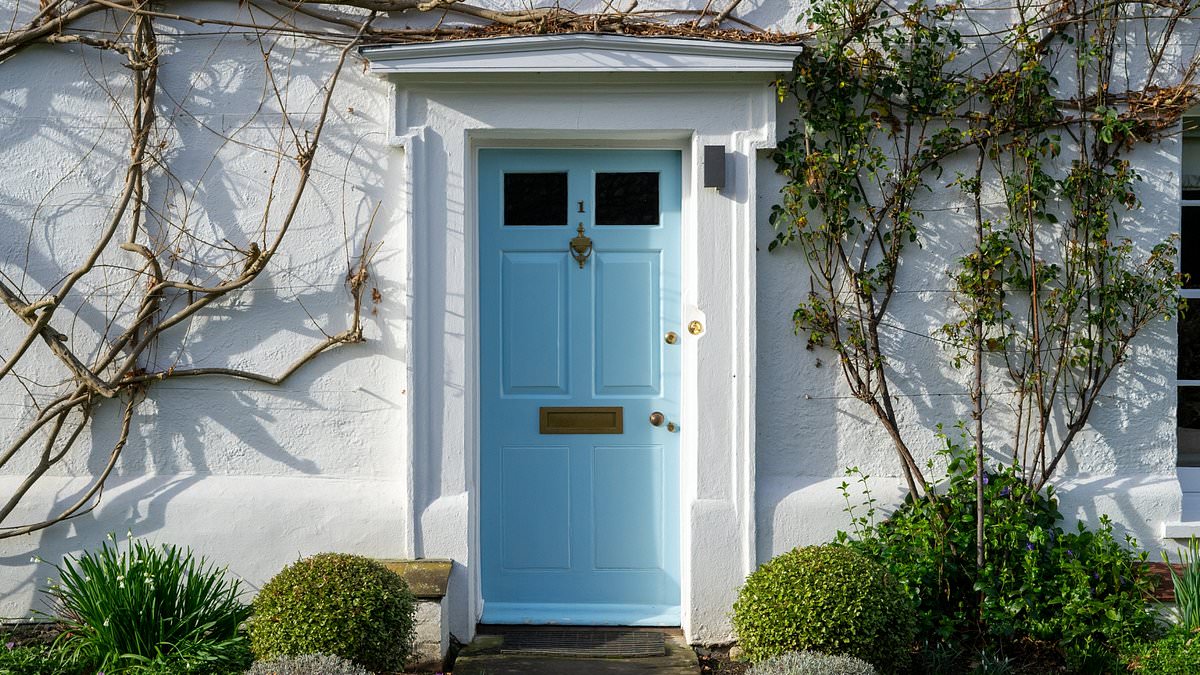Copyright dailymail

Home and Garden Saving & banking Cost of living & bills Cards & loans Privacy Policy Thursday, Nov 6th 2025 5-Day Forecast Advertisement We became accidental landlords but now want to sell up - how do we work out our CGT bill? Has your tax question been answered? Read Heather's previous replies By TAX EXPERT AND COLUMNIST Updated:07:00 GMT, 6 November 2025 We jointly own what used to be our family home after a disaster when buyers pulled out and we took a bridging loan to buy our next house. We rented it out for two years and now wish to sell as we originally only paid £94,000 and it’s now worth £500,000. We understand that as I am a basic rate taxpayer and my husband is a higher rate taxpayer we will pay 18 and 24 per cent capital gains tax respectively. The house has a £250,000 mortgage on it which we took to build an extension. We have been told that the CGT will mean we will get nothing from the house after paying off the mortgage. How do we work out the CGT? And will it make a difference if we buy another house to be our permanent residence and therefore all our equity could be put into that? Scroll down to find out how to ask Heather Rogers your tax question Heather Rogers replies: Many people become 'accidental landlords'. The typical scenarios are being unable to sell the family home when moving into a new property, inheriting a property that is difficult to sell straight away, or wishing to hold onto an inherited property for personal reasons. Let's look at the general rules on capital gains tax on residential properties, then deal with your specific circumstances. How Private Residence Relief works When you sell your own home, one which is your main residence, you do not usually have to pay any CGT because you can claim something called Private Residence Relief on any gain made on the sale. PRR is a relief from capital gains tax which would otherwise be due on the sale of a property. If your property meets the following criteria, then PRR will usually apply and no capital gains will be payable on any profit made when it is sold. - You have one property and you have lived there as your main home for the time you have owned it. - You have not let part of it out, other than having one lodger at a time. If you have more than one lodger at a time, then PRR may not be allowable on the whole gain – so bear that in mind if you consider doing this. However, if you have let your home out because you lived in job-related accommodation, you may still be OK - Part of your home has not been used exclusively for business. - The land including buildings are less than 5,000 square metres (around an acre). - The property was not bought for profit-making purposes. If you have doubts on any of the above, take advice on your own situation. It is also worth remembering that married couples and civil partners can only have one property between them as their main home at any one time. If you buy a second property and live in it part time, then within two years you can nominate which one of the two is your main home. Should you buy a third, you can re-nominate within two years of the purchase of the third which of the three properties is your main home. PRR generally ceases to apply the moment a property is no longer your main residence, for whatever reason: whether you move to a new property and elect that as your main residence or you let a property out. If your property does not qualify for PRR in full, then you could have CGT to pay. More can be found on Gov.uk about nominating your main home here and Private Residence Relief in general here. How does CGT work? Capital gains tax is payable on the profits from the sale of an asset - what you sell it for, less what you paid for it. Depending on the asset there may be certain reliefs available and each person has a capital gains tax allowance to offset against their gains - this is currently £3,000. If an asset was transferred to you as a gift, then the value at transfer will be the valuation for acquisition. When the asset is left to you through a will, then the probate value will be the value you are deemed to have acquired it for. You can deduct costs of acquisition and disposal if relevant - the estate agent's and solicitor's fees on sale, for example. You can also deduct costs where you have spent money and have added value to the asset. What if you let out a former home? If you buy and move into another house and let out your old home, the important thing to bear in mind is that once a property ceases to be your main residence the PRR ceases to apply - but only from the time you let the property out. However, the period that a property was your main residence will still qualify for PRR when CGT is calculated. In order to determine whether you have a liability, you will need to work your gain and what part of that gain is covered by PRR. How to calculate CGT The gain is calculated on the amount you sold the property for, less the amount you purchased it for. You can deduct the following from the gain. Acquisition costs: Stamp duty paid; Solicitors’ fees; Surveyor fees; Other fees paid at the time of purchase. Sale costs: Estate agent fees; Solicitor and surveyor fees; Other fees paid at the time of sale or that are directly related to the disposal. Costs of improvements which have added value to the property (not repairs and maintenance or replacement of something which is not an improvement) which can include: Extensions; Garden landscaping; Solar panels. The period the gain has accrued over then needs to be split between the period that you lived in the property as your main residence, which is covered by PRR, and the period after you moved out to your new main residence, which is not covered by PRR. You can deduct the last nine months of ownership, regardless of whether you were living there or not. And you can deduct your CGT allowance of £3,000 from your share of the gain providing you have not used your allowance against any other gains in the tax year in which the gain was made. You can also deduct any allowable capital losses made in this tax year or brought forward from earlier years. RELATED ARTICLES My terminally ill brother wants to give me his house to...After Rachel Reeves' rental licence misstep, here's what ALL... Share this article HOW THIS IS MONEY CAN HELP What you need to know each week: Listen to the This is Money podcast As you have sold a residential property and PRR does not apply to the whole gain you will need to report the gain and pay any CGT due to HMRC within 60 days of completing the sale of the relevant property. If you fill in a self-assessment tax return you should report the gain and the tax paid on that as well. You will pay at 18 per cent on the sale of residential property if the gain combined with your income for the year does not take you into the higher rate band, or 24 per cent if the gain or part of it when combined with your income takes you into the higher rate band. Gov.uk has more details and a calculator here. One other thing to note is that if you paid a higher rate of Stamp Duty Land Tax as you bought a new home and had not sold your previous one, you can claim a refund if you sell your former home within three years of buying your new home. Gov.uk has more on Stamp Duty Land Tax refunds here. As you can see from all the above, there is a lot involved in calculating CGT and some further admin it is important to get right. This is why many people prefer to pay a professional accountant to sort out their CGT bill for them. See below for my guide to finding a good accountant How do you find a good accountant? Five tips from a tax expert on what to look out for and typical costs What about your situation In your circumstances, you need to work out your gain as I have laid out above. You will be able to deduct the costs of the extension from the gain. The period that the house was your main residence will qualify for PRR providing you meet the qualifying conditions listed above. From what you have told me, the only period subject to CGT will be the time from when you moved out, less the last nine months of ownership which also qualifies for relief. If as you imply in your question the home you purchased with the bridging loan has been your main home during all the period you have owned it then it will qualify for PRR, again providing it meets the conditions for PRR listed above. If you buy a third property in which to live with the proceeds of the two other properties, then this will become your main home and subject to PRR on any future sale in the same manner. Any gain made during the period your first home was not your main home, minus nine months, will be taxable as I have explained. You cannot avoid that by using the proceeds to buy another property in which to live. If you have any problems in working out your gain and reporting it to HMRC then do contact an accountant for assistance. Ask Heather Rogers a tax question Heather Rogers, founder and owner of Aston Accountancy, is our tax columnist. She is ready to answer your questions on any tax topic - tax codes, inheritance tax, income tax, capital gains tax, and much more. If you would like to ask Heather a question about tax, email her at taxquestions@thisismoney.co.uk. Heather will do her best to reply to your message in a forthcoming monthly column, but she won't be able to answer everyone or correspond privately with readers. Nothing in her replies constitutes regulated financial advice. Published questions are sometimes edited for brevity or other reasons. Please include a daytime contact number with your message - this will be kept confidential and not used for marketing purposes. If Heather is unable to answer your question, you can find out about getting help with tax here, including sources of free professional advice if you are elderly and/or on a low income. You can also contact MoneyHelper, a Government-backed organisation which gives free assistance on financial matters to the public. Its number is 0800 011 3797. Heather gives tips on how to find a good accountant here, including when to seek help, hiring the right type of firm and typical costs. NAVIGATE THE MORTGAGE MAZE Can my daughter keep her fixed mortgage after a break-up? Why can't I exit my Santander mortgage early without penalty? Our mortgage is fixed at 1.99% until 2025 - how do we prepare? Is now the right time to jump off my variable mortgage deal? How do I capitalise on my 1.24% mortgage rate before 2026? Share or comment on this article: We became accidental landlords but now want to sell up - how do we work out our CGT bill? Add comment Share what you think Worst rated The comments below have not been moderated. The views expressed in the contents above are those of our users and do not necessarily reflect the views of MailOnline. Add your comment Enter your comment By posting your comment you agree to our house rules. Submit Comment Do you want to automatically post your MailOnline comments to your Facebook Timeline? Your comment will be posted to MailOnline as usual. Do you want to automatically post your MailOnline comments to your Facebook Timeline? Your comment will be posted to MailOnline as usual We will automatically post your comment and a link to the news story to your Facebook timeline at the same time it is posted on MailOnline. To do this we will link your MailOnline account with your Facebook account. We’ll ask you to confirm this for your first post to Facebook. You can choose on each post whether you would like it to be posted to Facebook. Your details from Facebook will be used to provide you with tailored content, marketing and ads in line with our Privacy Policy. Toggle Search POPULAR MONEY SECTIONS Take me to… Best savings rates tables Find the best mortgage calculator Power Portfolio investment tracker Stock market data and share prices This is Money's podcast This is Money's newsletter The best DIY investing platforms The best bank accounts The best cash Isas The best credit cards Save on energy bills Compare broadband and TV deals How to find cheaper car insurance Investing Show videos Financial calculators Enter search term Search within All articles Share prices THIS IS MONEY PODCAST Would Rachel Reeves dare to hike income tax? DIY INVESTING PLATFORMS Free trading and Isa Free fractional share. T&Cs apply From £4.99 per month with £3.99 trades No account fees Low cost ETF investing and no dealing fees Low cost portfolios Fund dealing at £1.50, share dealing £5 Investing ideas UK's biggest investing platform Cashback offer Up to £1,500 on transfers. T&Cs apply Share investing 30+ million global community Guidance and tools Model portfolios, free fund dealing No share dealing fee Buy shares, ITs & ETFs commission-free Cashback offer Minimum investment and T&Cs apply 4.06% on cash in Isa Dodl: AJ Bell's low cost investing app About our selection Read our full guide to the best investing platforms The real vs fake grass turf war dividing Britain: We reveal what an artificial lawn does to your house price Children to learn about mortgages and budgeting at school as financial education is made compulsory Phone companies to block scam calls from abroad that impersonate banks under new Government plans Mortgage war erupts: Nationwide cuts rates to 3.64% as households see cheapest deals since 2022 My neighbours have a disgusting habit that's ruining my home life: What can I do? DEAN DUNHAM replies The old school car theft tactic making a comeback: Here's how to avoid becoming a victim How does salary sacrifice work and is this handy pension perk under threat in the Budget? Everything you MUST know before taking a pension tax-free lump sum: Our experts reveal if Rachel Reeves will dare to ruin your retirement plans EXCLUSIVEIs home buying in Britain broken? More than HALF of movers have had a property chain collapse Can I get an injunction against antisocial HMO neighbours? Do you have savings with these villainous big banks? This is why you must move your money NOW: SYLVIA MORRIS Pound tumbles to seven-month low as Rachel Reeves paves way for income tax hike Too bright car headlights ARE dazzling drivers, government study finds Two in five business owners say they'll leave Britain if Rachel Reeves delivers tax rises Sicknote Britain is costing more than £200bn a year as the country slides into an 'avoidable crisis' Britain's bloated public sector is the real reason Reeves is coming for your wealth, says ALEX BRUMMER M&S profits dive 99% after cyber attack but cost is LESS than forecast Follow us on: Back to top Leadership Team This is Money Mail Travel About Daily Mail Terms of Use Website Terms Privacy Settings Privacy Policy Subscription Terms & Conditions Do not sell or share my personal information Contributors Additional Cookie Information Get in Touch How to complain Work with us Advertise with us Daily Mail Subscriptions Help & FAQs Video Archive Topic Index Text-Based Site © 2025 Associated Newspapers Limited Advertisement Advertisement



